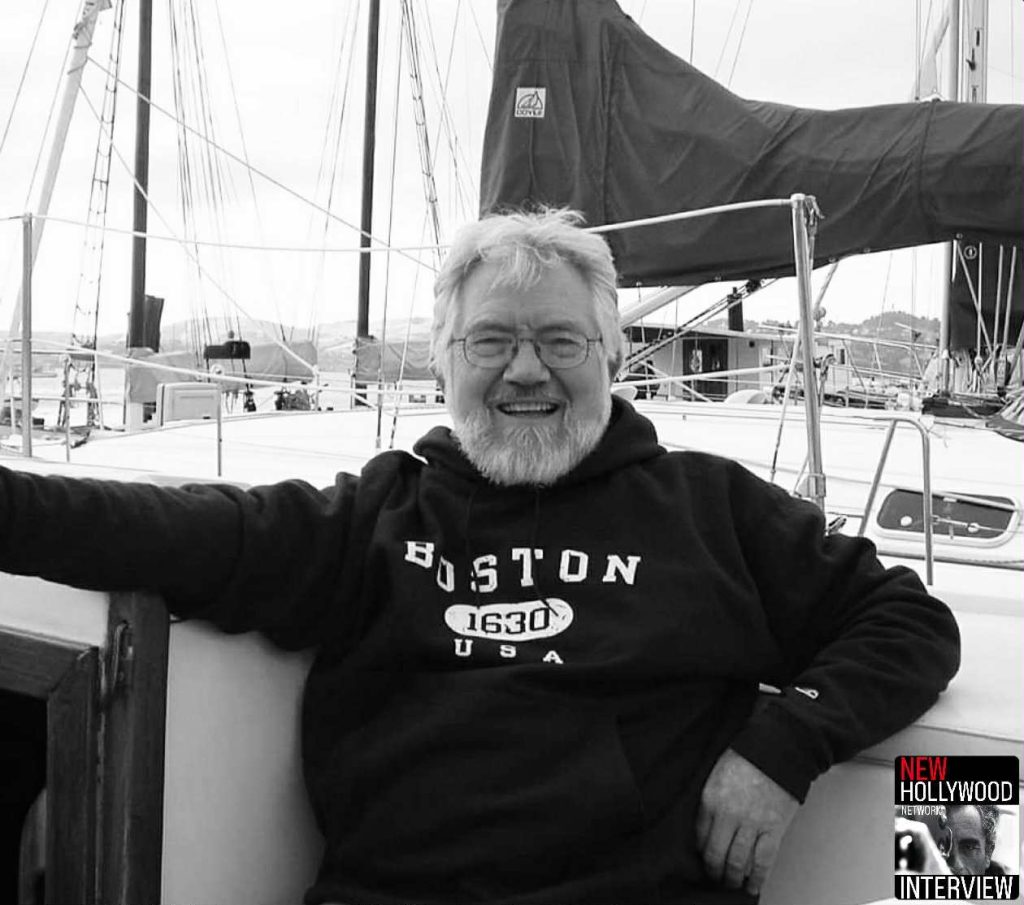
Where does your desire to express yourself through art come from?
Ultimately, I believe it’s an existential choice for all serious artists—a way “to know, to really know,” to question and understand all aspects of life and living.
My background is academic. I was a professor of dramatic literature in the English Department at California State University, Chico. The playwrights I taught became, in turn, my teachers. I often return to their insights on life and their techniques of plotting to inform my own scripts. For example, in one of my stories, a couple escapes to a forest to avoid parental sanctions—a concept that echoes Shakespeare’s A Midsummer Night’s Dream. My version, Ghost Town, NM, explores the blurred line between reality and illusion.
My film ALTA CALIFORNIA, which has won multiple national and international awards, had its origins when I first arrived in the U.S. I started out at a community college before transferring to UCSB. In my U.S. history class, the focus was on Westward Expansion, the Constitution, and the Bill of Rights. But there was no mention of women, Black people, or Native peoples. That struck me deeply, and I set out to learn more about the Indigenous peoples of California.
The more I read, the more I realized that this was a story needing a broader audience. Much of what is taught, both in schools and in society, is only a partial story. For instance, few know of Captain Felipe de Neve—a humane and now largely forgotten opponent of Padre Serra. Over the years, this journey of discovery became ALTA CALIFORNIA.
See my short Vimeo video: https://vimeo.com/71506674
What are your goals as an artist?
Beyond the existential drive I mentioned earlier, I’m drawn—as an immigrant—to explore stories of those who, by choice or circumstance, find themselves as strangers in a strange land.
I relate to the immigrant’s struggle to “navigate as safely as possible through an ever-shifting landscape of independent and unpredictable powers” (Alan Jacobs), and the challenge of reconciling inherited values with newly adopted ones. I aim to explore these themes in both serious and comedic dramatic forms.
What is your opinion on the cultural industry?
Horace said it best: our aim is “to teach and to delight.” It’s a delicate balance.
You rarely see a creative work that’s too “teachy”—that’s more the domain of academic writing. However, I believe we’ve gone too far in the other direction, sacrificing even a modest degree of depth for pure entertainment. Too many films today feel superficial, overly animated, and lacking substance.
We live in extraordinarily complex times. Every day we’re challenged in how we see ourselves—within our families, nations, and global society. Yet so many scripts being produced today seem intent on repeating the formulas of the past. The “hit” that mimics a previous hit.
One simple exercise is to compare the weekly or monthly box office Top Ten with the Academy Award or Oscar winners. They rarely overlap.
Do you think independent artists today have enough opportunities to share their creativity?
As I’ve implied, these are challenging times. And yet, new projects that truly reflect those challenges are rare.
Agents and producers often cling to what’s safe, familiar, and easily marketable. That’s why I’m always encouraged to see festivals and contests that actively seek bold, unconventional voices—those scripts that live outside the boundaries of the expected and acceptable.
What new project are you currently working on?
Watching the success of the Harry Potter series, I realized how deeply English it was—rooted in that cultural context. So I set out to write a YA novel called The Boy Who Earned His Magic. It’s a fantasy adventure-quest set in the diverse and underexplored landscape of the United States, with its rich array of characters, cultures, languages, myths, and dramatic settings.
I’ve since adapted it into a six-episode television series (one hour each). At the end of the story, there’s a mystery—one of the characters doesn’t return home. That became the prompt for a seventh episode.
I’m also working on a continuation of The Mongrel, set in a world where a virus has attacked male fertility. What are the implications?
Other projects may follow. I’ll keep seeking, keep creating. I have no intention of “going gentle into that good night” (Dylan Thomas).

